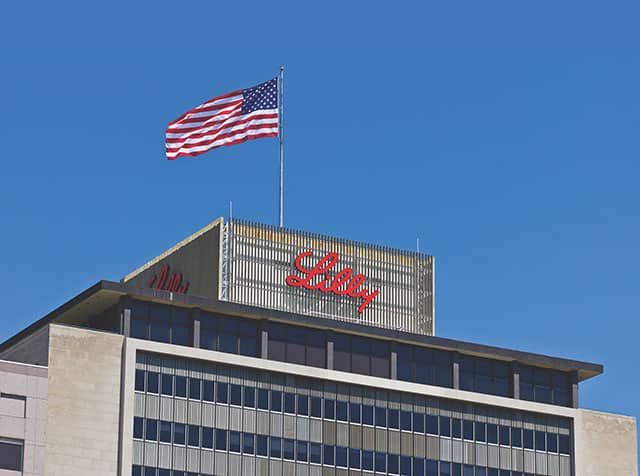
Eli Lilly has entered a collaboration agreement with GlaxoSmithKline (GSK) and Vir Biotechnology to evaluate their respective COVID-19 antibodies.
As part of the deal, Lilly will test a combination of its neutralising antibody bamlanivimab with GSK/Vir’s monoclonal antibody VIR-7831.
The BLAZE-4 trial will evaluate the two antibodies in low-risk patients with mild-to-moderate COVID-19.
The two neutralising antibodies bind to different epitopes of the SARS-CoV-2 spike protein, Lilly said in a statement.
Bamlanivimab is directed against the SARS-CoV-2 spike protein and is designed to block viral attachment and entry into human cells, while VIR-7831 has the potential to both block viral entry into health cells and clear infected cells.
VIR-7831 has previously demonstrated the ability to neutralise the SARS-CoV-2 virus, which causes COVID-19, both in vitro and in vivo.
In October 2020, GSK and VIR also expanded their phase 3 study of the monoclonal antibody into additional sites in North America, South America and Europe.
The phase 3 COMET-ICE trial is evaluating the monoclonal antibody – VIR-7831 – for the early treatment of COVID-19 patients who have a high risk of hospitalisation.
Lilly’s bamlanivimab has already been found to reduce the risk of COVID-19 infections in residents and staff in care homes, and also to reduce the risk of hospitalisations and deaths in high-risk COVID-19 patients when combined with its other antibody etesevimab.
“With a virus like SARS-CoV-2, it’s expected that variants could emerge that require new therapeutic options, which is why Lilly is studying bamlanivimab together with other neutralising antibodies, including etesevimab,” said Daniel Skovronsky, chief scientific officer of Lilly and president of Lilly Research Laboratories.
“Adding VIR-7831 to our study is an important part of our commitment to develop therapies to treat current and future strains of COVID-19 until vaccines are widely available and utilised,” he added.
In November 2020, bamlanivimab was granted an emergency use authorisation (EUA) by the US Food and Drug Administration (FDA) for the treatment of high-risk, mild-to-moderate COVID-19 patients.
The EUA was supported by an interim analysis conducted on Lilly’s BLAZE-1 clinical trial, in which bamlanivimab cleared SARS-CoV-2 by day 11 in most patients with mild-to-moderate COVID-19 symptoms.
In December 2020, the US government purchased an additional 650,000 doses of the COVID-19 antibody for $812.5m.
Following the new purchase agreement, the number of bamlanivimab doses secured by the US government totals 950,000.




